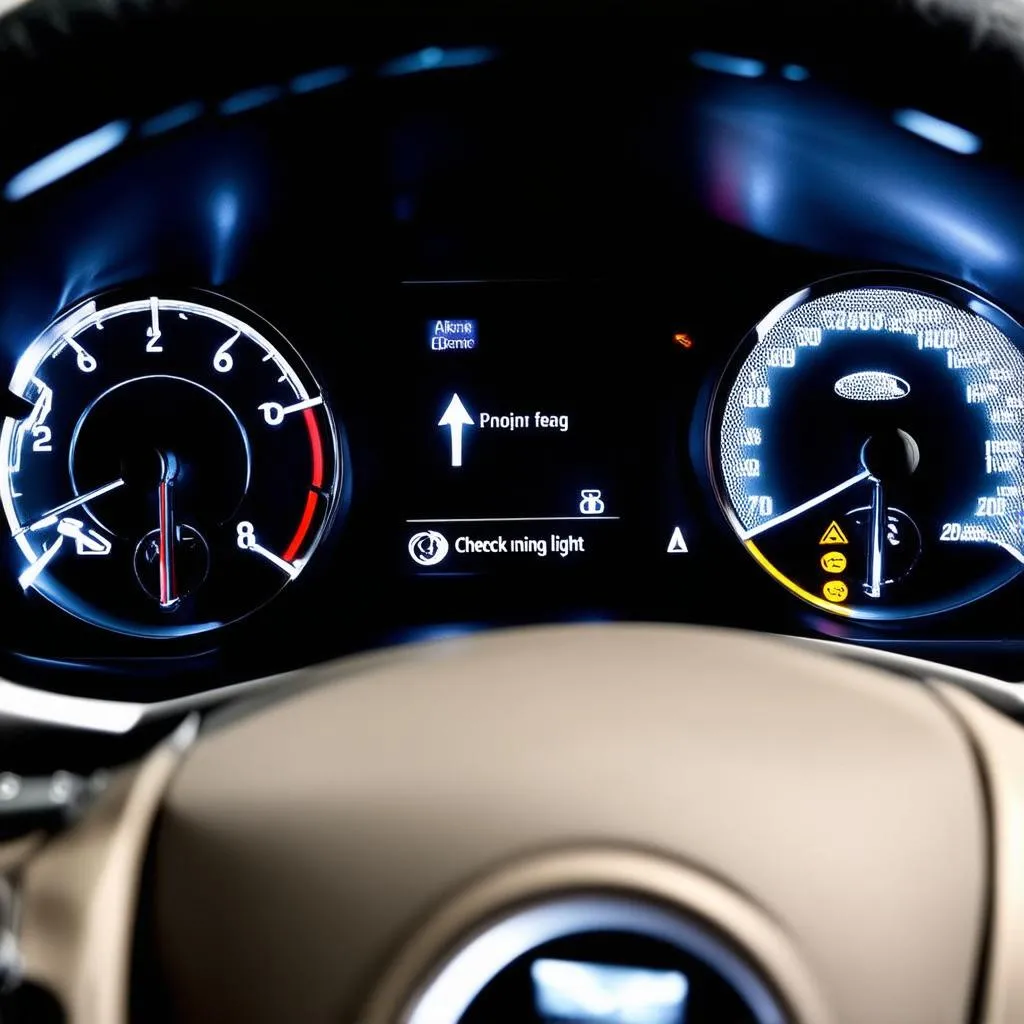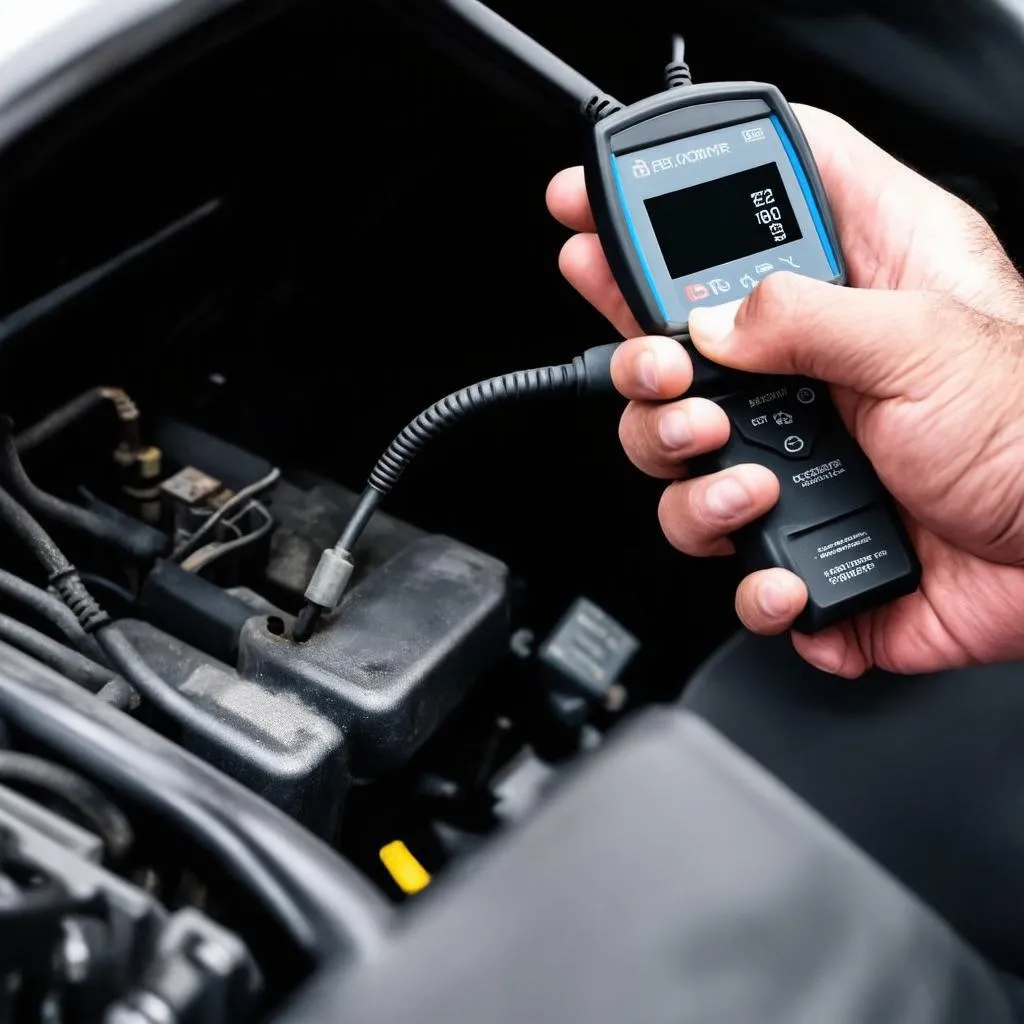Have you ever been cruising down the road, minding your own business, when suddenly a menacing yellow light illuminates your dashboard – the dreaded “Check Engine” light? Before you start picturing plumes of black smoke billowing from your tailpipe, take a deep breath. It could be something as simple as a loose gas cap, but in many cases, the culprit lies within your vehicle’s emissions on-board diagnostics (OBD) system.
What Exactly is Emissions OBD?
In simple terms, imagine your car has a built-in mechanic – that’s essentially what your OBD system is. It constantly monitors the performance of your engine and emissions control systems, ensuring everything is running smoothly and within legal environmental standards. Think of it as your car’s way of contributing to a greener planet.
This sophisticated system uses a network of sensors to collect data on various aspects of your engine’s operation, including:
- Oxygen Levels: How much oxygen is present in your exhaust can tell a lot about your engine’s combustion efficiency.
- Airflow: The system checks for leaks or restrictions in your air intake system.
- Engine Coolant Temperature: Overheating can wreak havoc on your engine and increase emissions.
- Catalytic Converter Efficiency: This component plays a vital role in reducing harmful pollutants in exhaust gases.
 Car Dashboard Warning Lights
Car Dashboard Warning Lights
Why is OBD Important?
Now, you might be thinking, “Okay, but why should I care about all this technical stuff?” Well, here’s why OBD is crucial:
- Environmental Protection: By keeping your engine running at peak efficiency, OBD significantly reduces harmful emissions that contribute to air pollution and climate change.
- Early Problem Detection: Remember that “built-in mechanic” we talked about? OBD can detect minor issues before they escalate into major (and expensive) repairs.
- Smoother Running Engine: A well-maintained engine thanks to OBD translates to better fuel economy, saving you money at the pump.
- Passing Emissions Tests: In many states, passing an emissions test is mandatory for vehicle registration. A healthy OBD system ensures you sail through these tests without a hitch.
Common OBD-Related Questions and Concerns
Let’s address some frequently asked questions about emissions OBD:
Q: What does it mean when my check engine light flashes?
A: A flashing check engine light typically indicates a more serious problem requiring immediate attention. It could mean your catalytic converter is failing or your engine is misfiring, potentially causing further damage if ignored.
Q: Can I drive my car with the check engine light on?
A: While you might be tempted to ignore a steady check engine light, it’s best to get it checked out as soon as possible. As Dr. Emily Carter, an automotive engineer specializing in emissions systems, once said, “Driving with a check engine light on is like walking around with a broken ankle – you might be able to manage, but it’s not doing you any favors in the long run.”
Q: How do I get my OBD system checked?
A: Most auto repair shops and dealerships have specialized diagnostic tools that can read the error codes stored in your car’s OBD system, pinpointing the root cause of the issue.
 Mechanic Using OBD Scanner
Mechanic Using OBD Scanner
Beyond the Basics: Exploring OBD-II and Dealer-Level Scanners
For those of you who like to delve deeper into the mechanical intricacies, you might be interested in learning about OBD-II and dealer-level scanners. OBD-II is the standardized version of the system found in most cars manufactured after 1996. Dealer-level scanners, on the other hand, are more sophisticated diagnostic tools used by dealerships and specialized repair shops to access manufacturer-specific data and perform advanced diagnostics. You can find more information about OBD-II systems and scanners on our website, [link to relevant article on techcarusa.com about OBD-II].
Emissions OBD: A Gateway to a Healthier Car and Planet
Remember, your car’s emissions OBD system is your ally in maintaining a healthy vehicle and contributing to a cleaner environment. Pay attention to its signals, address any issues promptly, and enjoy the peace of mind that comes with a well-maintained car.
Need help diagnosing a check engine light or understanding your car’s OBD system? Contact our team of automotive experts via WhatsApp at +84767531508 for 24/7 support. We’re here to help!
Looking for more car maintenance tips and insights? Check out these related articles:
- [Link to: https://obd2-scanner.net/2002-mitsubishi-fuso-obd-location/ with text “OBD Port Location Guide: Finding Your Car’s Diagnostic Connector”]
- [Link to: https://obd2-scanner.net/1998-740i-obd/ with text “Understanding OBD Error Codes”]
Let us know in the comments below if you have any questions or experiences you’d like to share about emissions OBD!
